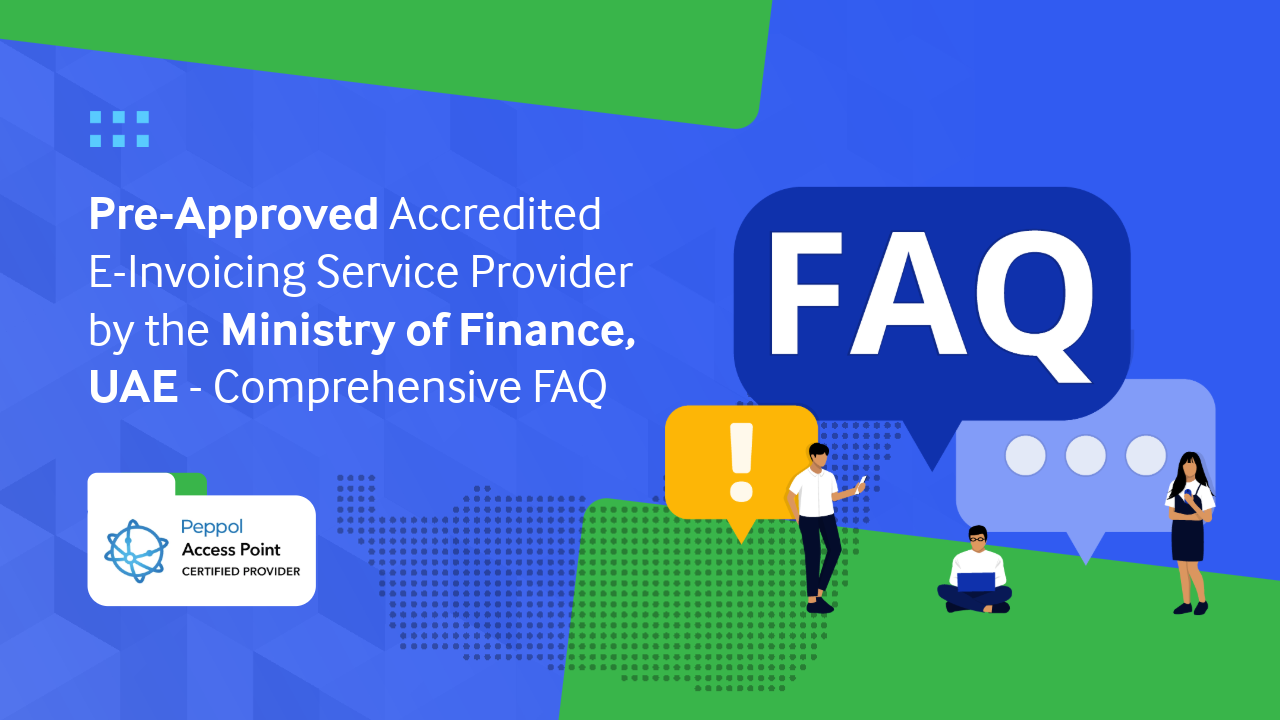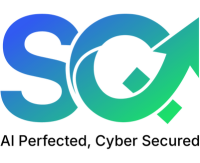
What are the specific criteria and technical standards that the Ministry of Finance, UAE uses to accredit E-Invoicing Service Providers?
Accredited providers of e-invoicing solutions in the UAE must comply with the UAE’s National E-Invoicing Framework, PEPPOL standards, and GCC specifications. Key requirements include ISO 27001 security certification, business continuity protocols, and high-volume transaction capacity. Standards are reviewed annually and updated to reflect emerging technologies and security threats. Providers of e-invoicing software undergo regular audits with transition periods of 3–6 months to implement new technical specifications.
What is the difference between a pre-approved service provider and a fully accredited service provider?
Pre-approved providers of FTA-compliant e-invoicing solutions have completed initial vetting and operate under provisional status for 12 months with intensive monitoring. Fully accredited providers have passed complete evaluation cycles and hold unrestricted authorization. Pre-approved providers suit specialized needs with potential cost benefits, while fully accredited ones offer comprehensive e-invoicing software solutions in the UAE with proven performance and scalability.
How does the e-invoicing requirement integrate with the UAE's VAT system?
Service providers must embed VAT compliance mechanisms including accurate tax code classification, real-time VAT calculation at the 5% standard rate, and FTA portal integration. The best e-invoicing software in the UAE also ensures dual compatibility with Zakat calculations, immutable digital signatures, secure transmission to FTA portals, and multi-currency VAT support.
What are the data retention and archival requirements for e-invoices?
E-invoice systems must retain invoices and metadata for at least five years. Providers require redundant, encrypted data centers to ensure continuity and compliance with UAE and GDPR data protection laws. The best e-invoicing software in the UAE enables certified data export, audit logging, and jurisdiction-specific archival for multinational operations.
How does the accreditation process handle cybersecurity and data protection?
E-invoicing solution providers in the UAE must hold ISO 27001 and SOC 2 Type II certifications, conduct quarterly penetration tests, and maintain cyber insurance of at least AED 5 million. Advanced cybersecurity frameworks with multi-factor authentication, tokenization, and 2-hour breach notification protocols are mandatory.
What are the technical integration requirements with existing ERP systems?
E-invoicing systems in the UAE must support REST APIs, SFTP transfers, and real-time EDI synchronization. The best e-invoicing software offers pre-built connectors for SAP, Oracle, and NetSuite, ensuring smooth integration. Implementation typically spans 10–15 weeks with sandbox testing and expert support.
How does the compliance verification and audit trail system work?
Accredited FTA-compliant e-invoicing solutions maintain immutable audit trails for every invoice event, timestamped and stored securely. Non-compliance can lead to fines of AED 50,000–500,000 or suspension. Providers must maintain compliance bonds and give government audit access within 24 hours.
What is the difference between e-invoicing and digital invoicing in the UAE context?
E-invoicing in the UAE follows a government-approved structured format with legal status, while digital invoicing lacks statutory authority. Only FTA-approved e-invoice software fulfills compliance mandates.
How do accredited providers handle cross-border e-invoicing?
Accredited e-invoicing software providers in the UAE ensure GCC harmonization, complying with Saudi ZATCA, Bahrain, Oman, Qatar, and Kuwait standards. Systems format invoices per each country’s tax rules and maintain localized audit trails.
How do accredited providers handle cross-border e-invoicing?
Accredited e-invoicing software providers in the UAE ensure GCC harmonization, complying with Saudi ZATCA, Bahrain, Oman, Qatar, and Kuwait standards. Systems format invoices per each country’s tax rules and maintain localized audit trails.
What are the financial guarantees and service level agreements?
Accredited e-invoicing software providers maintain performance bonds (AED 1–5 million) and guarantee 99.9% uptime. SLAs cover compensation for downtime, with cyber liability insurance up to AED 20 million.
How does the framework handle credit notes, debit notes, and invoice amendments?
E-invoice systems ensure each credit and debit note links to the original invoice with unique identifiers. All changes are traceable, maintaining audit integrity and fraud prevention.
What training and certification requirements apply to service provider staff?
Personnel managing FTA-compliant e-invoicing solutions must hold CISSP or CISM certifications, undergo regular cybersecurity and tax compliance training, and maintain Ministry-approved VAT certification.
How do providers manage migration from manual to e-invoicing?
Migration to a UAE e-invoicing system typically spans 3–6 months and includes legacy assessment, data mapping, and parallel invoicing. Leading e-invoicing solution providers offer industry-specific playbooks and rollback safety mechanisms.
What happens during regulatory investigations and compliance audits?
The Ministry of Finance UAE conducts periodic inspections and data audits. Providers found non-compliant face temporary suspension or client transition mandates. Public dashboards display compliance and accreditation status for transparency.
What are emerging technologies being prepared for UAE e-invoicing?
E-invoicing solutions in the UAE are evolving with blockchain, AI, and real-time settlement. Blockchain enhances verification (2026–2027), AI enables fraud detection (2027–2028), and smart contracts will automate payments by 2030.
